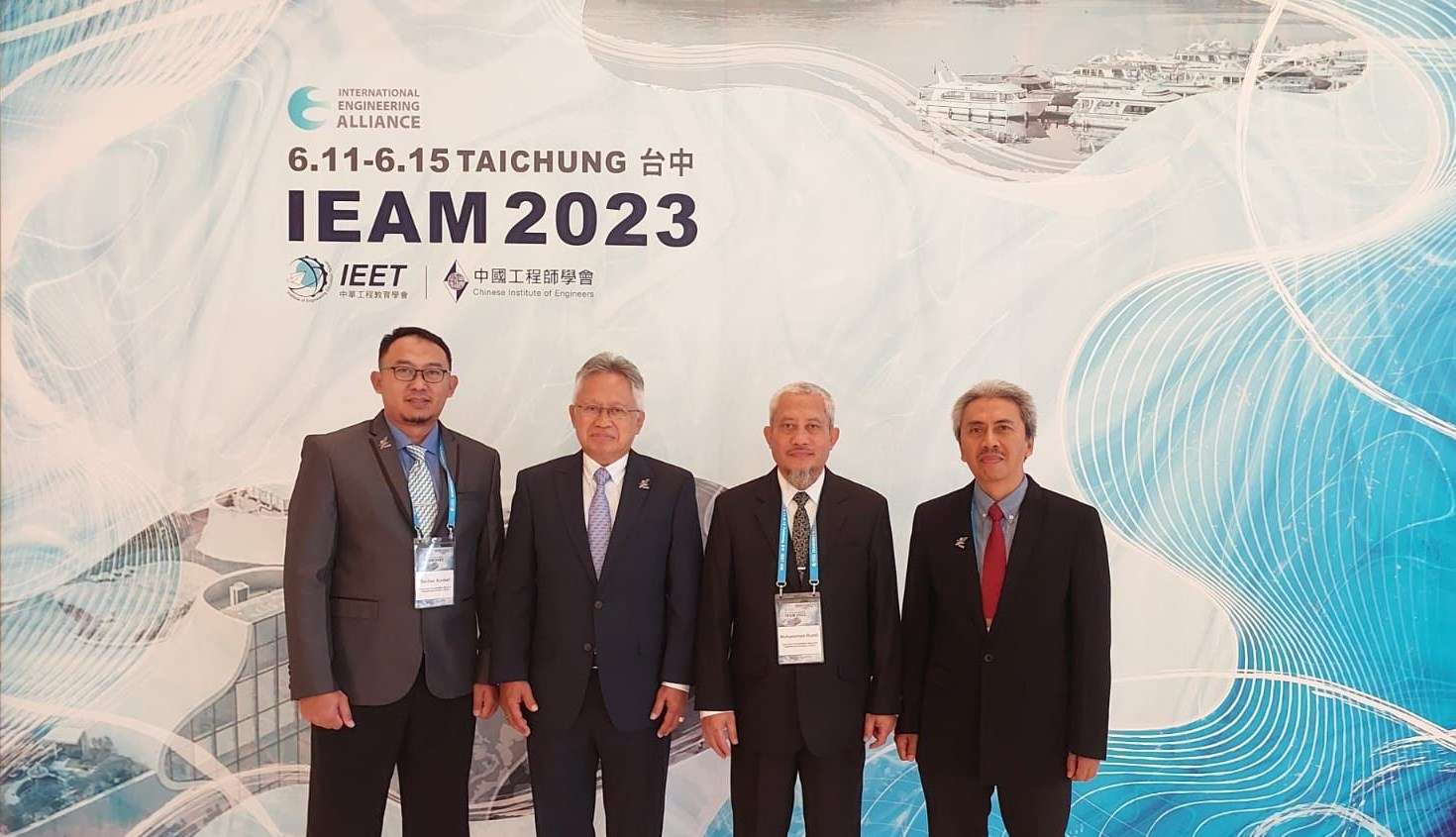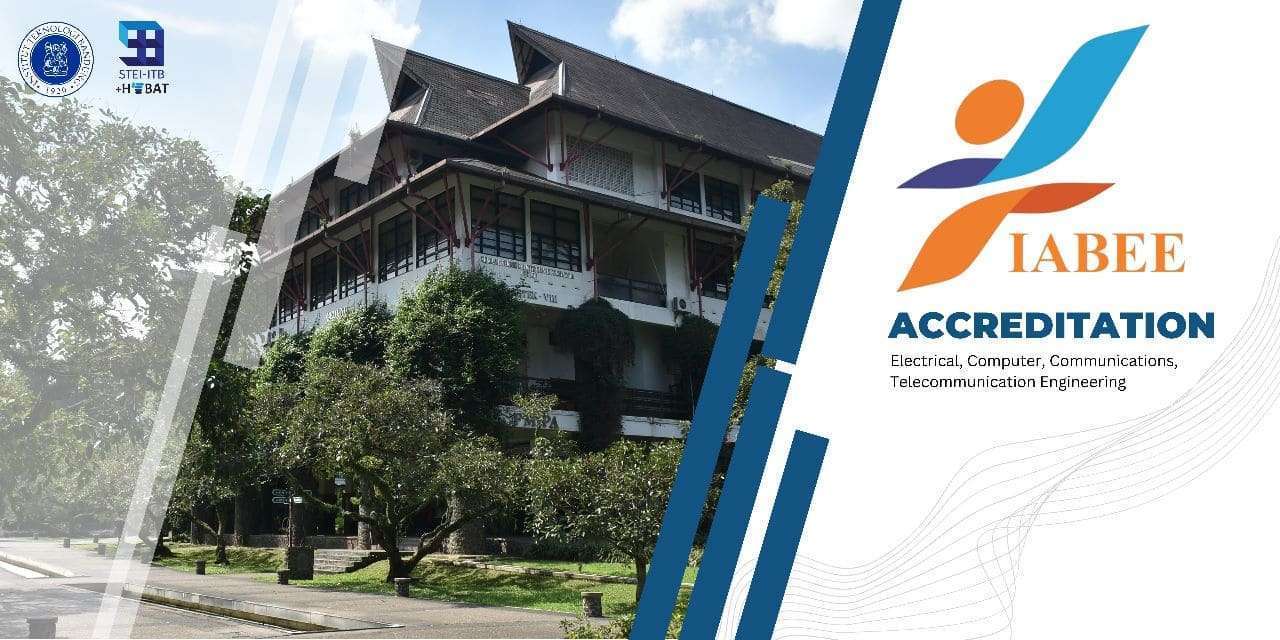Undergraduate Program in Biomedical Engineering
The Biomedical Engineering Study Program is one of the new programs within the School of Electrical Engineering and Informatics at ITB. This program was developed in anticipation of advancements in medical electronics systems and health technology.
Currently, the maintenance, measurement, and calibration of medical equipment in hospitals are carried out by the biomedical technician unit, under the coordination of the Head of the Hospital Maintenance Installation. Ideally, the responsibility for these activities should be held by someone with the profession of a clinical engineer, rather than medical personnel. Given this situation, Indonesia will continue to require a significant number of clinical engineers to serve the community in approximately 2,300 hospitals and clinics across the country.
Biomedical Engineering is a multidisciplinary field that synergizes biology and medicine with various fundamental and engineering sciences. The expertise in Biomedical Engineering is generally associated with problem-solving abilities and finding appropriate solutions. In healthcare services, Biomedical Engineering skills are often needed to assist in selecting, testing the performance, and developing maintenance procedures for various health equipment. This expertise is also related to innovation and the development of devices in industry and research, as well as the exploration of various concepts that can be utilized in the field of biomedicine.
Accordingly, these competencies are expected to be cultivated into skills that not only facilitate the development of biomedical engineering applications but also foster critical thinking and innovation to create new opportunities in the advancement and application of biomedical engineering.
Education Objectives
• Graduates will have successful careers in their professions in biomedical engineering or related fields.
• Our graduates will successfully pursue graduate study or engage in professional development.
• Graduates will demonstrate leadership and play an active role in advancing their communities.
Learning Outcomes
• Able to identify, formulate, and solve complex engineering problems based on the principles of engineering, science, and mathematics
• Able to apply engineering design procedures to produce engineering solutions that meet established requirements specifications, taking into account aspects of public health, safety, welfare, and global, cultural, social, environmental, and economic factors.
• Able to communicate effectively with diverse audiences
• Recognize ethical and professional responsibilities in field situations, and use consideration of these aspects to make informed judgments, taking into account their impact in the global, social, cultural and environmental context.
• Able to work effectively in a team, including collaboratively with other team members to foster leadership within the team, a collaborative and inclusive work environment, and accuracy in setting goals, planning the division of tasks, and meeting objectives.
• Able to compile and carry out experimental procedures, analysis, and interpretation of data appropriate to the characteristics of the problem, and can draw appropriate conclusions based on scientific-engineering assessments.
• Able to search for, learn and apply new knowledge independently according to needs, by using appropriate learning strategies
• Able to apply basic principles of engineering, biology, human physiology, chemistry, calculus-based physics, mathematics (differential equations) and statistics.
• Able to solve bio/biomedical engineering problems, including those related to the interaction of living and non-living systems.
• Mampu menganalisis, memodelkan, merancang, dan merealisasikan devais, sistem, komponen, atau proses rekayasa bio/biomedika
• Mampu melakukan pengukuran terhadap sistem hidup dan menginterpretasikan data hasil pengukuran tersebut
Curriculum
| No | Code | Course | Credits |
|---|---|---|---|
| 1 | FI1101 | Basic Physics I | 3 |
| 2 | KI1101 | Basic Chemistry I | 3 |
| 3 | MA1101 | Mathematics I | 4 |
| 4 | WI1101 | Pancasila | 2 |
| 5 | WI1102 | Computational Thinking | 2 |
| 6 | WI1103 | Introduction to Sustainability Principles | 2 |
| 7 | WI1111 | Basic Physics Laboratory | 1 |
| 8 | WI1112 | Laboratorium Kimia Dasar | 1 |
| Credit Total | 18 | ||
| No | Code | Course | Credits |
|---|---|---|---|
| 1 | EL1200 | Pengantar Analisis Rangkaian | 2 |
| 2 | IF1210 | Algorithms and Programming 1 | 3 |
| 3 | KI1201 | Kimia Dasar 2A | 3 |
| 4 | MA1201 | Matematika IIA (Sains dan Rekayasa) | 4 |
| 5 | WI2001 | Introduction to Engineering and Design | 3 |
| 6 | WI2003 | Sport | 1 |
| 7 | WI2005 | Indonesian | 2 |
| Credit Total | 18 | ||
| No | Code | Course | Credits |
|---|---|---|---|
| 1 | EB2101 | Dasar Teknik Biomedis | 2 |
| 2 | EB2102 | Rangkaian Elektrik dan Elektronika | 3 |
| 3 | EB2103 | Sistem Digital dan Mikroprosesor | 3 |
| 4 | EL2101 | Praktikum Rangkaian Elektrik | 1 |
| 5 | KI2162 | Biokimia Umum | 3 |
| 6 | KI2163 | Praktikum Biokimia Umum | 1 |
| 7 | MA2072 | Matematika Rekayasa IA | 3 |
| 8 | WI2002 | Literasi Data dan Inteligensi Artifisial | 2 |
| Credit Total | 18 | ||
| No | Code | Course | Credits |
|---|---|---|---|
| 1 | EB2201 | Anatomi dan Fisiologi Manusia | 3 |
| 2 | EB2202 | Elektronika Biomedis | 3 |
| 3 | EB2203 | Sinyal dan Sistem | 3 |
| 4 | EB2204 | Probabilitas dan Biostatistika | 3 |
| 5 | EB2205 | Komputasi dan Analisis Data Biomedis | 3 |
| 6 | EB2209 | Praktikum Teknik Biomedis 1 | 2 |
| 7 | WI2004 | English | 2 |
| Credit Total | 19 | ||
| No | Code | Course | Credits |
|---|---|---|---|
| 1 | EB3101 | Fisika Biomedis | 3 |
| 2 | EB3102 | Instrumentasi Biomedis | 3 |
| 3 | EB3103 | Pengolahan Sinyal Biomedis | 3 |
| 4 | EB3104 | Molekul, Sel, dan Organisme | 3 |
| 5 | EB3109 | Praktikum Teknik Biomedis 2 | 2 |
| 6 | WI2006 | Citizenship | 2 |
| 7 | WI201X | Citizenship | 2 |
| Credit Total | 18 | ||
| No | Code | Course | Credits |
|---|---|---|---|
| 1 | EB3201 | Biomekanika | 3 |
| 2 | EB3202 | Sistem Kendali Biomedis | 2 |
| 3 | EB3203 | Pengolahan Citra Biomedis | 3 |
| 4 | EB3204 | Pembelajaran Mesin dalam Teknik Biomedis | 2 |
| 5 | EB3220 | Perancangan Sistem Biomedis | 2 |
| 6 | WI2021 | Manajemen Rekayasa Industri | 2 |
| Credit Total | 14 | ||
| No | Code | Course | Credits |
|---|---|---|---|
| 1 | EB4040 | Metode Penelitian dan Bioetika | 3 |
| 2 | EB4080 | Kerja Praktik dan Profesionalisme | 2 |
| 3 | EB4120 | Purwarupa Sistem Biomedis | 3 |
| Credit Total | 8 | ||
| No | Code | Course | Credits |
|---|---|---|---|
| 1 | EB4090 | Thesis | 4 |
| Credit Total | 4 | ||
Detailed explanations for each course can be accessed via the following link: https://akademik.itb.ac.id/id/program/S1/program-studi/183
Specialization
Minor
Career Prospect
In line with advancements in biology and medicine, the demand for biomedical engineering expertise will become increasingly popular in the future. The following job titles represent just a few of the available options:
- Research engineers work in laboratories, testing and creating innovations. This role requires a high level of creativity on the part of the engineer, along with significant patience in dealing with the complex characteristics of biological and medical systems. Attention to detail is crucial for graduates entering this profession. Research engineers are responsible for the discovery phase behind new biomedical technologies.
- Clinical engineers apply systems engineering skills to the proper installation and maintenance of healthcare instruments in preclinical and clinical settings. Experienced clinical engineers rely on their ability to think holistically about the technical aspects of systems as well as the anticipated biomedical and biohazard implications. Clinical engineers are responsible for routine inspections and troubleshooting of medical instruments used in healthcare facilities.
- Biomedical technology analysts work at medical technology certification organizations to assess whether a particular technological advancement is beneficial for adoption in clinical practice. Biomedical innovations should only be allowed to become part of clinical routines after a thorough evaluation has determined significant benefits over the associated costs and medical risks. In this way, unnecessary burdens and hazards to patients can be minimized.
Enrollment
Prospective students wishing to continue their studies at the School of Electrical Engineering and Informatics (STEI) can participate in the entire selection and admissions process, which is centrally organized by the Bandung Institute of Technology (ITB). Official information regarding requirements, selection mechanisms, schedules, and registration procedures can be accessed through the ITB Admissions page at the following link: https://admission.itb.ac.id/info/stei/
Contact
Contact Us
Undergraduate Program in Biomedical Engineering
Labtek VIII/Gedung Achmad Bakrie, Jl. II, Lebak Siliwangi, Coblong, Bandung City, West Java 40132
Program Administrator: Suranto
Phone/WA : +62-812-2233-6653
Parking at ITB
Vehicles on the ITB campus are restricted to employees and special guests. There are three main parking facilities:
- Sasana Budaya Ganesha (Sabuga) is the largest parking area for four-wheeled and two-wheeled vehicles. Access to this parking area is from Jalan Taman Sari or Jalan Siliwangi.
- Parkir Timur (SR) provides limited parking for four-wheeled and two-wheeled vehicles. This parking area is open 24/7, except on major holidays.
- Parkir Barat (Civil) is specifically for two-wheeled vehicle users.






